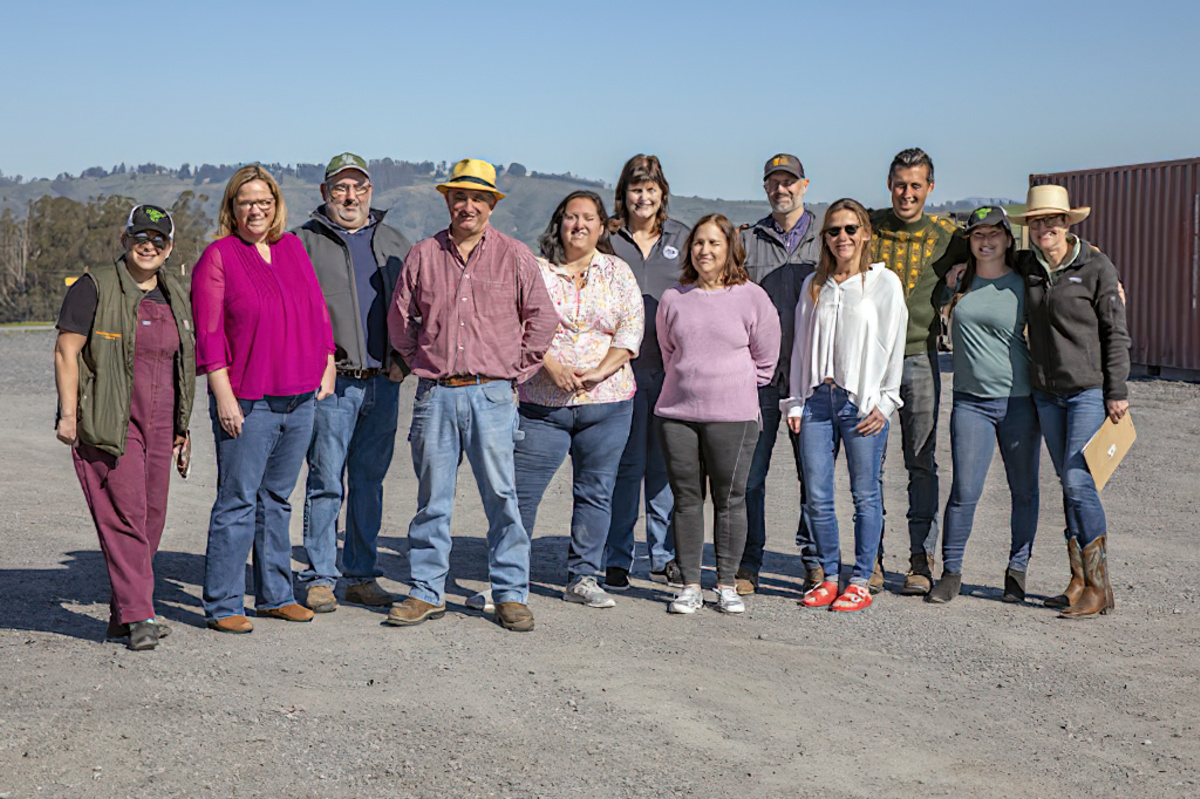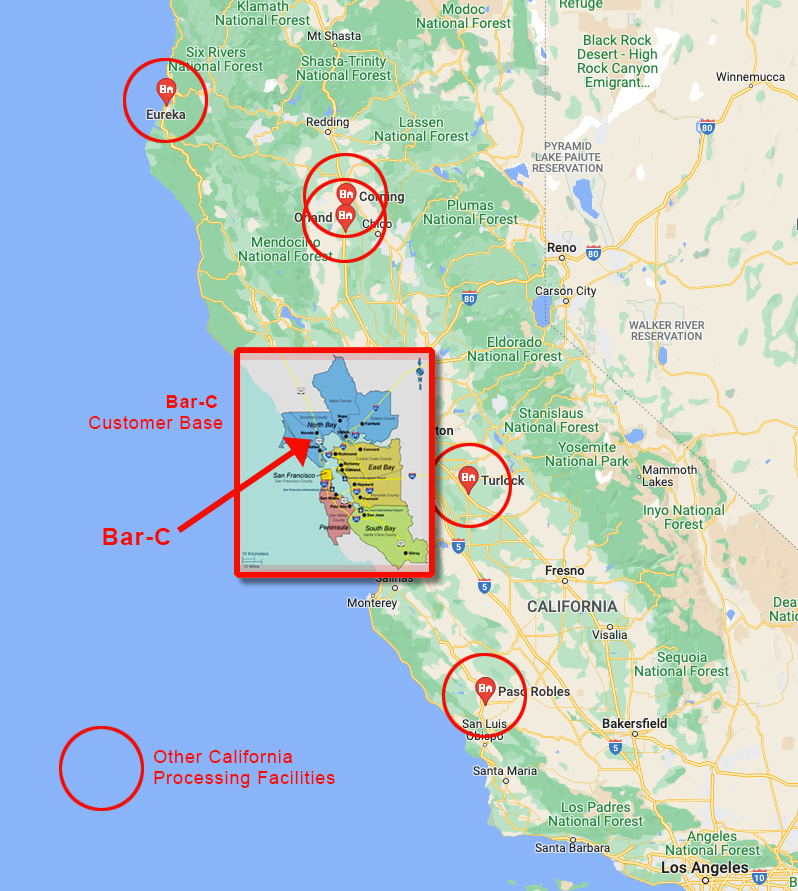BAR-C is an Animal Welfare Approved multi-species processing operation in the greater Bay Area that officially opened for business in January, 2022.
Bar-C Update – We’re In Business!

Founding members of Bar-C and other stakeholders pose with USDA Undersecretary, Jenny Lester Moffitt (second from left) at the BAR-C facility, February 2022.
By: Kathy Webster
 BAR-C is an Animal Welfare Approved multi-species processing operation for cattle, hogs, sheep, and goats from local small farmers and ranchers in the greater Bay Area that officially opened for business in February, 2022. Participating ranchers save on fuel costs, reduce CO2 emissions, and reduce stress on their animals due to BAR-C’s proximity to their farms and ranches. Prior to BAR-C, ranchers were driving to far-flung locations including Eureka, Dixon, Corning, Orland, Paso Robles, and Turlock (see map for a visual).
BAR-C is an Animal Welfare Approved multi-species processing operation for cattle, hogs, sheep, and goats from local small farmers and ranchers in the greater Bay Area that officially opened for business in February, 2022. Participating ranchers save on fuel costs, reduce CO2 emissions, and reduce stress on their animals due to BAR-C’s proximity to their farms and ranches. Prior to BAR-C, ranchers were driving to far-flung locations including Eureka, Dixon, Corning, Orland, Paso Robles, and Turlock (see map for a visual).
Given the recent challenges of COVID-19, supply chain disruptions, and permitting and utility installation delays, all those involved with BAR-C are proud to be able to demonstrate that regional processing cooperatives are possible. As we worked to open, we began a conversation with USDA Undersecretary, Jenny Lester Moffitt. Undersecretary Moffitt is a fifth generation organic walnut grower and an advocate of small farms and ranches. Shortly after BAR-C opened, she visited with the founders and board members to talk about the challenges of starting a small processing facility and how USDA could help other regions in the country create similar models.
Key items from the discussion include:
- Create a regional USDA AgOmbudsman position to guide start-ups of small and mid-scale processing facilities. This position must be knowledgeable of USDA/FSIS regulations and rules around meat processing.
- Develop a USDA-funded apprentice program to help increase the pool of trained staff.
- Create more grants specifically for small and mid-sized processing plants.
- Make USDA/FSIS documents and plans (HACCP and SOP) that are required for operation available in additional languages to increase accessibility and opportunity.

Example of the distances Bar-C customers traveled to process their livestock before bringing them to Bar-C.
After 18 months of hard work, challenges, and delays, this cooperative model has shown that solving regional processing bottlenecks is possible. A cooperative model “by ranchers, for ranchers” with a USDA-inspected animal harvest in a sustainable, non-competitive environment places the interests of the ranching community first and is a critical component to ensuring the success of small to mid-scale ranchers today and into the future.
We are grateful to all who contributed to this effort and hope it will inspire the creation of more regional processing cooperatives in California and beyond.